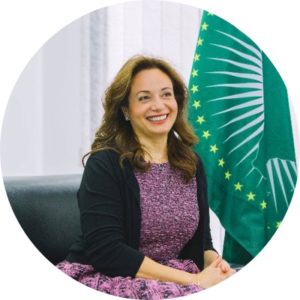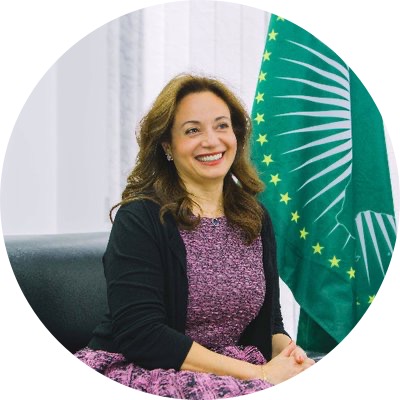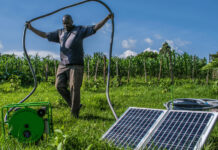By Nina Mitch
DR Congo: The African Network for Women in Infrastructure (ANWIN) High-level Steering Committee members, including ANWIN’s founding members, recently met virtually for the first ordinary session
In her opening remarks, H.E. Dr. Amani Abou-Zeid Commissioner for Infrastructure and Energy at the African Union indicates Africa must ensure that women are well represented in all dimensions of infrastructure development for inclusive and sustainable growth in the continent.

The Commissioner highlighted the disproportionate challenges women face due to infrastructure deficiencies. Dr. Abou-Zeid further noted that the pandemic recovery process should integrate women, as its rampant impacts will continue to be felt over the coming years.
“Infrastructure is key to recovery. Infrastructure can create jobs. It feeds businesses and industries in terms of procurement which can upheld economies to recover. The share of women in the recovery actions must be well thought. There, we must engage women and women-led enterprises, to avert the pandemic’s knock-on effect on supply and value chains in the infrastructure sector”, emphasized the commissioner.
AUC Department for Infrastructure and Energy presented the network’s Statutes to the members. This guiding document clarifies ANWIN’s role as a high-level advocacy platform for gender-responsive infrastructure development aiming to connect and enable individuals, civil society, private sector enterprises, and governmental organizations with a keen interest in gender-responsive infrastructure development and a commitment toward enhancing women’s participation in the infrastructure value chain.
The ANWIN Database Registration Criteria and Process document were also presented and discussed at the meeting. The latter would allow for organizations interested in and working on gender-responsive infrastructure development to receive updates on ANWIN’s efforts to increase women’s participation in all facets of the infrastructure development process.
Members suggested that the database be extended to cover women studying Science, Technology, Engineering, and Mathematics (STEM) and who are interested in gender-mainstreaming within the infrastructure space.
ANWIN’s major areas of engagement include political steering and advocacy, technical support, and advisory services, as well as knowledge exchange and capacity building. Dr. Abou-Zeid reiterated that ANWIN is not a women-only network but rather, a network advocating for women’s inclusion. ANWIN’s membership is thus open to men and women.
“ANWIN should be well promoted to feature influential organizations keen to uphold gender-responsive infrastructure development in the continent”, says Ms. Mfon Usoro who is one of the seven founding members of ANWIN.
Closing the meeting, Commissioner Abou-Zeid recognized members of the ANWIN High-Level Steering Committee for their relentless efforts toward forming and operationalizing the network, urging them to demonstrate a high level of cooperation for greater results. She also acknowledged partners for their continued support to ANWIN.
The African Network for Women in Infrastructure (ANWIN), which was endorsed by the Specialized Technical Committee (STC) in its Second Ordinary Session in Cairo from 17th to 18th April 2019 and officially launched at the 5th Edition of the Programme for Infrastructure Development in Africa (PIDA) Week in Cairo in November 2019, functions as a key instrument for promoting gender-responsive planning and implementation of African infrastructure projects ranging from transport, science, and technology, to water and energy.














